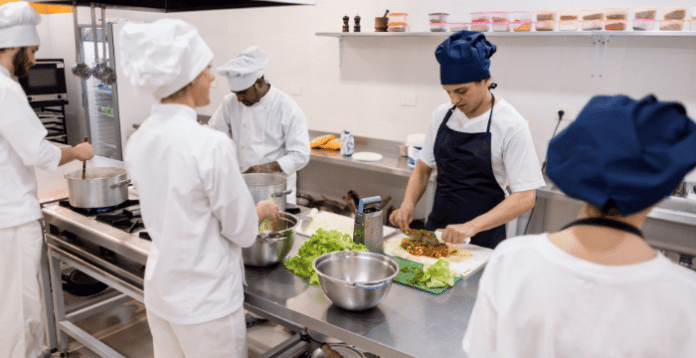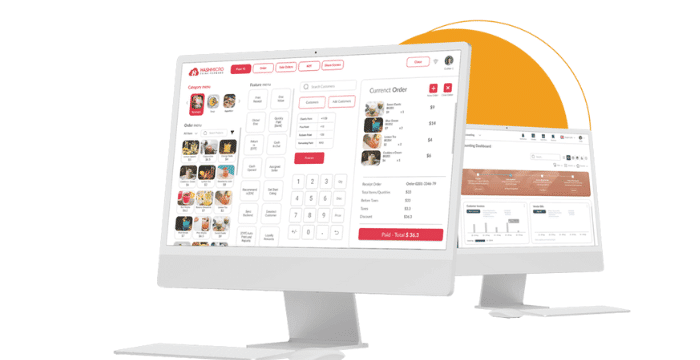The proper maintenance of food quality in commercial kitchens is of utmost importance for businesses in the food industry. As the kitchen is the heart of food service operations, maintaining its hygiene, ensuring the freshness of ingredients, and executing a precise cooking process is crucial to meet customers’ standards.
With the ever-increasing demand for efficiency and consistency, businesses need to leverage technology in managing their kitchen operations. Central kitchen management software is an effective solution that enables businesses to optimize their kitchen’s performance. This article explores the benefits of central kitchen management software and how it assists food service businesses in maintaining the quality of their food.
Table of Content:
Table of Content

What is Food Quality?
It refers to the characteristics and attributes of food that determine its value and suitability for consumption. The food quality is a complex concept that encompasses various factors, including the nutritional content, safety, flavor, appearance, and freshness of the food. Ensuring high-quality food is essential for promoting good health, preventing diseases, and satisfying consumers’ preferences and expectations.
Food Quality Control Procedures
Food quality control procedures are a set of measures and protocols put in place by food manufacturers to ensure that the food products they produce are safe and meet the required quality standards. Here are five important steps that are part of it:
Ingredients specification
The first step is defining the standards and specifications for each of the ingredients used in food production. This includes identifying the quality and quantity of the ingredients, their source, and their intended use. Moreover, to ensure the use of only safe and high-quality ingredients, it is essential to base the specifications on established food safety regulations and industry best practices.
Supplier list
This procedure involves identifying and selecting suppliers who meet the required quality standards for the ingredients used in food production. The suppliers’ credentials, such as their track record, quality certifications, and regulatory compliance, should be assessed and verified before they are added to the supplier list.
Product formulation
Product formulation is a process of creating a recipe or formula for a food product that meets the desired quality and safety standards. The formulation should be based on the ingredients’ specifications, and the finished product should be analyzed to ensure that it meets the established nutritional, safety, and quality standards.
Manufacturing procedures
Manufacturing procedures define the steps involved in producing a food product, including the use of equipment, handling of ingredients, and packaging of finished products. The procedures should be designed to prevent contamination and ensure that the product is safe for consumption. Regular equipment maintenance, cleaning and sanitation, employee training, as well as proper storage should be part of the manufacturing procedures.
Process record
Finally, businesses have to document all the steps involved in producing a food product, from the receipt of raw materials to the packaging of finished products. This record serves as evidence of compliance with established quality and safety standards and can be used for traceability purposes in case of a product recall. It should be kept up to date and accessible to relevant stakeholders at all times.
Central Kitchen Software to Streamline Food Quality Maintenance
Central Kitchen Software is an innovative tool designed to streamline food quality maintenance in commercial kitchens. This software helps food service providers ensure consistency and safety in their products by providing a centralized platform for managing food production processes. With this technology, kitchen managers can monitor food quality, track inventory levels, and automate ordering and restocking.
Additionally, central kitchen software reduces food waste and improves cost management by optimizing inventory levels and minimizing overproduction. Overall, this technology is an essential asset for food service providers looking to maintain high-quality standards and improve efficiency.
Also Read: Top Central Kitchen Softwares in Singapore
Central Kitchen Software Benefits to Maintain Food Quality
As food businesses strive to meet the increasing demand for consistent food quality, central kitchen software has emerged as a powerful solution. It offers numerous benefits that help maintain it while improving operational efficiency. Here are some of the most significant benefits:
Stock level monitoring
Firstly, central kitchen software allows you to monitor the stock level of ingredients in real-time. This feature helps to keep track of the stock level of each ingredient, and notifies you when the stock level reaches a minimum threshold. As a result, businesses can avoid stockouts, which could lead to delays in meal preparation or even impact the quality of food.
Automatic expiry date notification
The software enables chefs and kitchen staff to quickly and easily see when ingredients are nearing their expiration dates. As a result, they use only fresh ingredients in meal preparation. Furthermore, it aids in waste reduction by ensuring that ingredients are used before they expire, thus avoiding the risk of serving expired food to customers.
Maintain ingredients stock
The software maintains a comprehensive record of your ingredients. This includes their descriptions, units of measurement, and current stock levels. This feature helps to ensure that you have accurate information about your ingredients. Thus, businesses can make informed decisions about purchasing and ingredients usage with an integrated quality control report.
Keep track of in-process record
Lastly, with the software, chefs and kitchen staff can easily track the status of meals as they prepare them. This feature helps to ensure the maintenance of quality and consistency of dishes. Additionally, it races any issues that may arise during the preparation process. Hence, the meals meet the highest possible standards.
Conclusion
The quality of the food you serve depends on various factors, including the management of your kitchen. With the right tools and technology, you can streamline your kitchen operations and ensure the consistency of your food. HashMicro’s Central Kitchen Software is a powerful solution that can help you achieve this goal.
The system automates your inventory, orders, recipes, and other crucial aspects of your kitchen, resulting in improvement in your kitchen’s overall efficiency. With its user-friendly interface, customizable features, and comprehensive capabilities, this software can manage your kitchen with ease. Schedule a free demo now and take your kitchen operations to the next level!




































